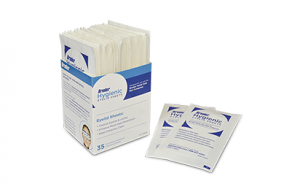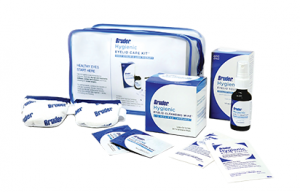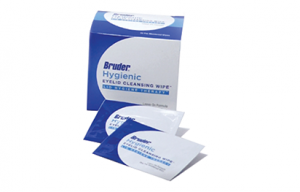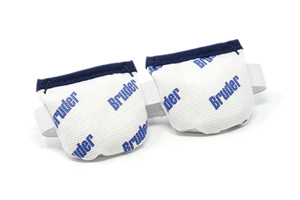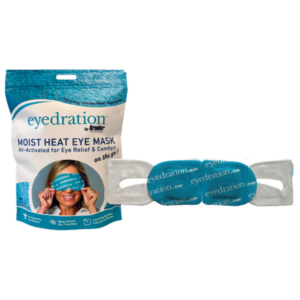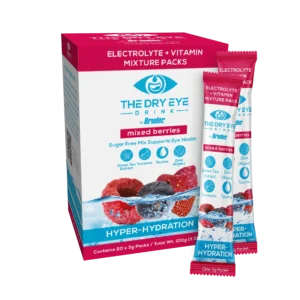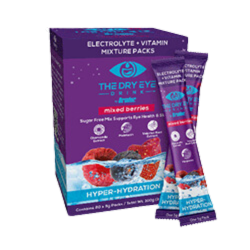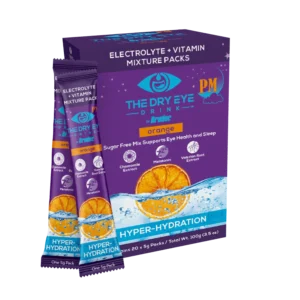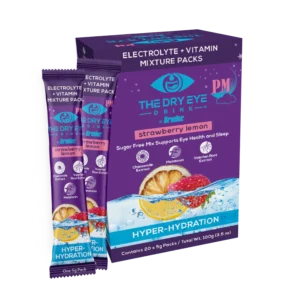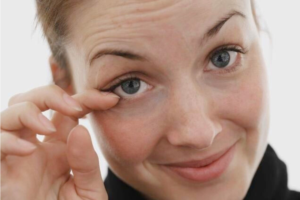Eyesight is a crucial aspect of our daily lives, yet it’s often overlooked until problems arise. This article serves as a gateway to understanding eye health, highlighting the essentials of maintaining good vision. We’ll touch on the importance of awareness, regular screenings, and personalized care routines. By the end of this guide, you’ll have a fresh perspective on eye care, equipped with practical advice for lifelong visual wellness.
1. Learn about your Eyes
Keeping informed aids in the early detection and prevention of eye issues. Learn about common eye conditions, their symptoms, and risk factors. This knowledge can help you recognize potential issues early on. Incorporate eye exercises, if recommended by your optometrist, to improve focus and reduce eye strain. And always consult with your optometrist before using over-the-counter eye drops, as excessive use may have adverse effects.
2. Book a Check-up with a Dry Eye Screening
Book a comprehensive eye exam and ask for a dry eye screening. Regular eye check-ups can detect early signs of various conditions, including dry eye. Regular eye exams can help detect early signs of systemic conditions like diabetes and hypertension, allowing for timely intervention. If you wear glasses or contact lenses, adhere to your optometrist’s prescription recommendations and update them as needed.
3. Keep your Eyelids and Eyelashes Clean
Particularly for contact lens wearers, it’s important to regularly use eyelid wipes and hypochlorous spray to clean your eyelids and lashes, reducing the risk of infections and managing conditions that contribute to dry eye. The use of eyeliner, mascara, eye shadow and lash extensions can be a breeding ground for bacteria and debris. Clean your lids with eyelid wipes, being careful to rub along the lid margin to exfoliate.
4. Be Aware of your Screen Time
Too much electronic screen time can lead to digital eye strain and contribute to dry eye. Practice the 20-20-20 rule: For every 20 minutes staring at a screen, look at something 20 feet away for 20 seconds. Consider blue light filtering glasses. If your job involves prolonged computer use, consult with your optometrist about the optimal setup for your work environment. Ensure adequate lighting for reading and other close-up tasks to minimize eye strain. Incorporate computer ergonomics and set up your computer workstation to reduce eye strain, including proper monitor positioning and lighting.
After 20 seconds of microwaving, wearing Samureye rejuvenates and refreshes eyes, delivering moist heat. A quick recovery from screen staring means you’ll be back in the zone. More here.
5. Warm your Eyelids for Comfort
When you do spend too much time online, apply a moist heat eye compress for 8-12 minutes to bring your eye moisture and tears to a healthier level. Consider incorporating a routine of warming your eyelids for overall eye health. This helps open the meibomian glands located in your eyelids, promoting the flow of oils essential for preventing tear evaporation and dry eye.
6. Hydrate Wisely
Staying hydrated is essential for alleviating dry eye symptoms but be cautious with your choice of drinks. Avoid typical sports or hydration drinks high in sugar and sodium. Instead, choose products containing anti-inflammatory ingredients like turmeric, taurine, and green tea. Also, look for eye-friendly vitamins such as A, C, B3, B6, and B12, along with electrolytes to help your body absorb these nutrients effectively.
7. Protect Your Eyes
Protect your eyes from the sun and its harmful ultraviolet (UV) rays by consistently wearing sunglasses with 100% UVA and UVB protection. Using a humidifier, especially in dry environments, can help alleviate dry eye symptoms by maintaining adequate indoor moisture. If you have allergies, work with your optometrist to manage symptoms that may affect your eyes. If you aren’t sure if allergies are to blame, eye doctors are beginning to add allergy testing to their practices. Or at the very least, your doctor can recommend an allergist. Protect your eyes from irritants like dust, smoke, and harsh chemicals, especially in work or home environments.
8. Get Enough Sleep
Adequate sleep is vital for eye health. Aim for 7-8 hours of sleep each night to help prevent eye strain and dryness. If you have a hard time falling asleep, consider adding chamomile, melatonin and valerian root to your diet. These three ingredients have been shown to aid sleep. (Dry Eye Drink PM)
9. Manage Health Conditions
Chronic conditions like diabetes and hypertension can affect your eyes. Properly managing these conditions is crucial for maintaining eye health. And for those who smoke, note that smoking can harm your eyes, increasing the risk of cataracts and macular degeneration. Quitting smoking is a powerful way to protect your eyes. Inform your optometrist about any family history of eye conditions, as this can influence your risk and the preventive measures needed. Discuss any medications you are taking with your optometrist, as some may have side effects that can impact your eyes.
Caring for your eyes is a continuous, multifaceted journey. It’s about more than just routine checks; it’s about integrating healthy habits and protective measures into your daily life. Embrace these insights and tips as your toolkit for nurturing eye health. Remember, your vision is a precious gift—treasure and protect it with the knowledge and practices shared in this guide.

